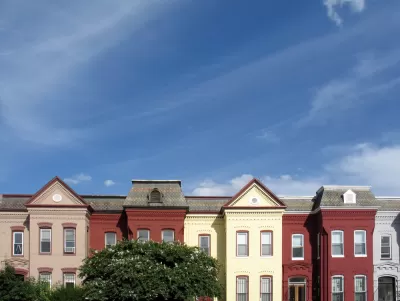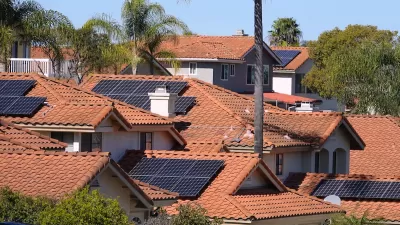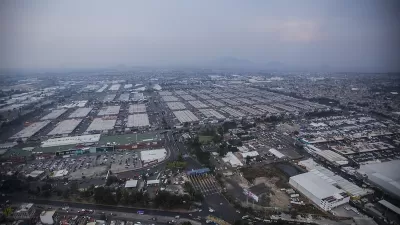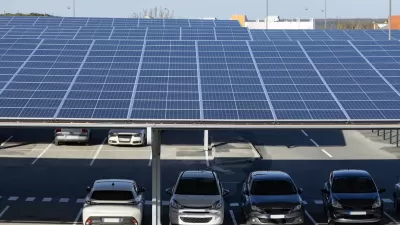"I realize that we are in crisis politically as well as sustainably. But…"

In a controversial decision earlier this month, the Washington, D.C. Historic Preservation Review Board decided against allowing front-facing solar panels on the sloped roofs of rowhomes.
David Alpert reports on the debate that took place during the hearing, noting the board's attempt at reconciling historic preservation and the climate crisis. Washington, D.C. has a new clean energy law, "[requiring] the District to reach 100% renewable energy by 2032 including 10% from locally-generated solar power." That wasn't enough to sway the board's decision in favor of allowing solar power on sloped roofs.
It's fairly clear how Alpert feels about the decision, and the talking points of the residents and board members who opposed the proposal (there is no shortage of rhetorical gymnastics in the soundbites included in the article). There's a call to action include toward the end of the article: "Barring action from the DC Council or stronger intervention by the Bowser administration, residents may have to make their voices heard when the preservation offices releases new guidelines [sic] in the coming weeks. Calcott said they anticipate a hearing before HPRB in December."
FULL STORY: Grappling with the climate crisis, DC’s preservation board rejects front-facing solar panels

Alabama: Trump Terminates Settlements for Black Communities Harmed By Raw Sewage
Trump deemed the landmark civil rights agreement “illegal DEI and environmental justice policy.”

Planetizen Federal Action Tracker
A weekly monitor of how Trump’s orders and actions are impacting planners and planning in America.

Why Should We Subsidize Public Transportation?
Many public transit agencies face financial stress due to rising costs, declining fare revenue, and declining subsidies. Transit advocates must provide a strong business case for increasing public transit funding.

Understanding Road Diets
An explainer from Momentum highlights the advantages of reducing vehicle lanes in favor of more bike, transit, and pedestrian infrastructure.

New California Law Regulates Warehouse Pollution
A new law tightens building and emissions regulations for large distribution warehouses to mitigate air pollution and traffic in surrounding communities.

Phoenix Announces Opening Date for Light Rail Extension
The South Central extension will connect South Phoenix to downtown and other major hubs starting on June 7.
Urban Design for Planners 1: Software Tools
This six-course series explores essential urban design concepts using open source software and equips planners with the tools they need to participate fully in the urban design process.
Planning for Universal Design
Learn the tools for implementing Universal Design in planning regulations.
Caltrans
Smith Gee Studio
Institute for Housing and Urban Development Studies (IHS)
City of Grandview
Harvard GSD Executive Education
Toledo-Lucas County Plan Commissions
Salt Lake City
NYU Wagner Graduate School of Public Service





























